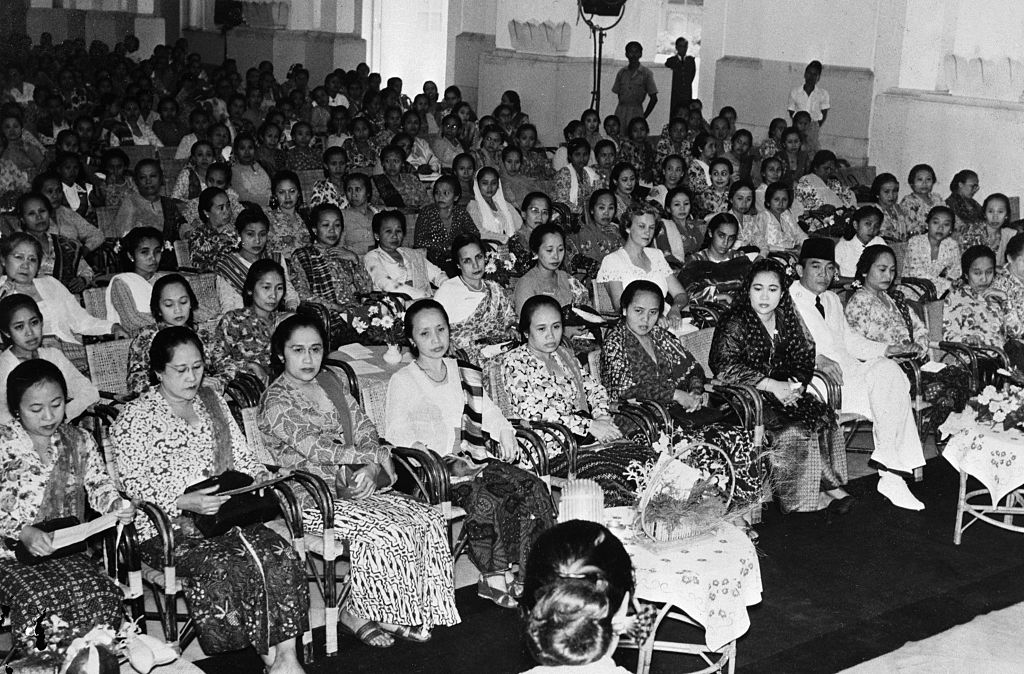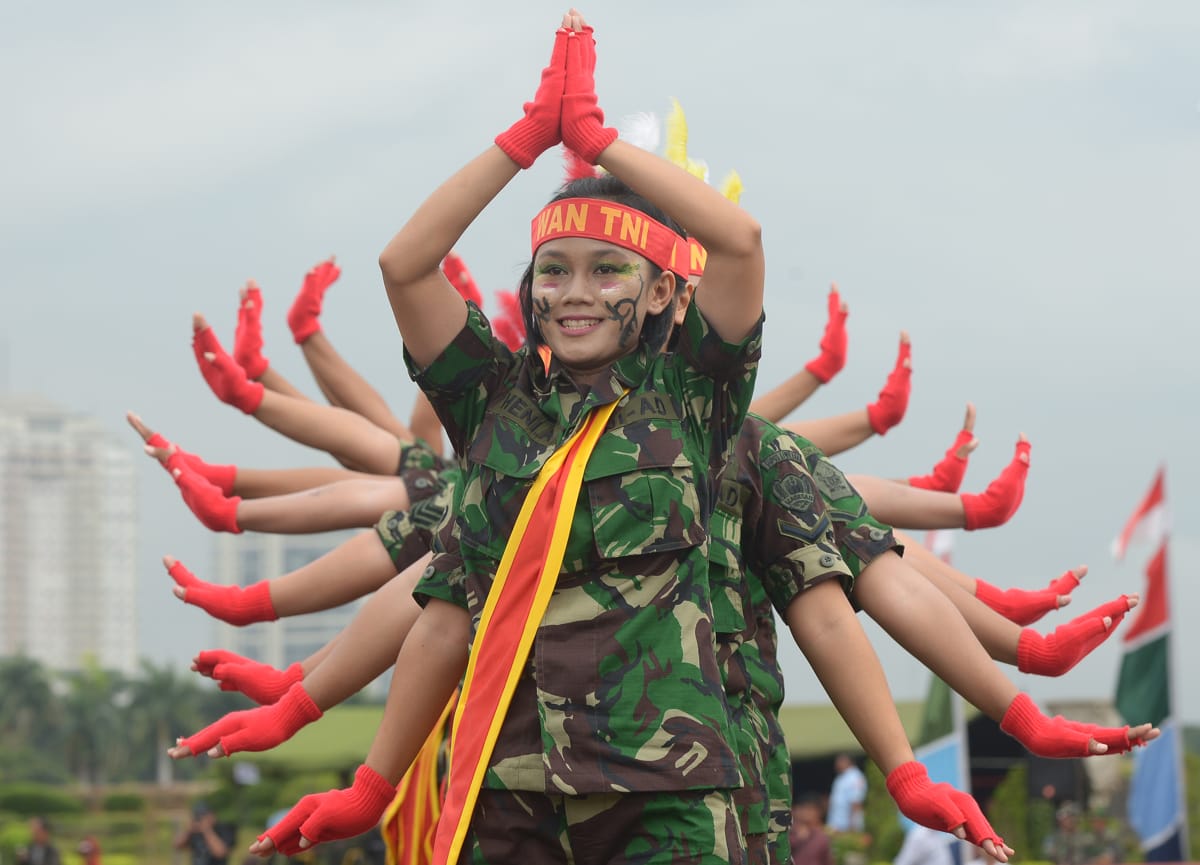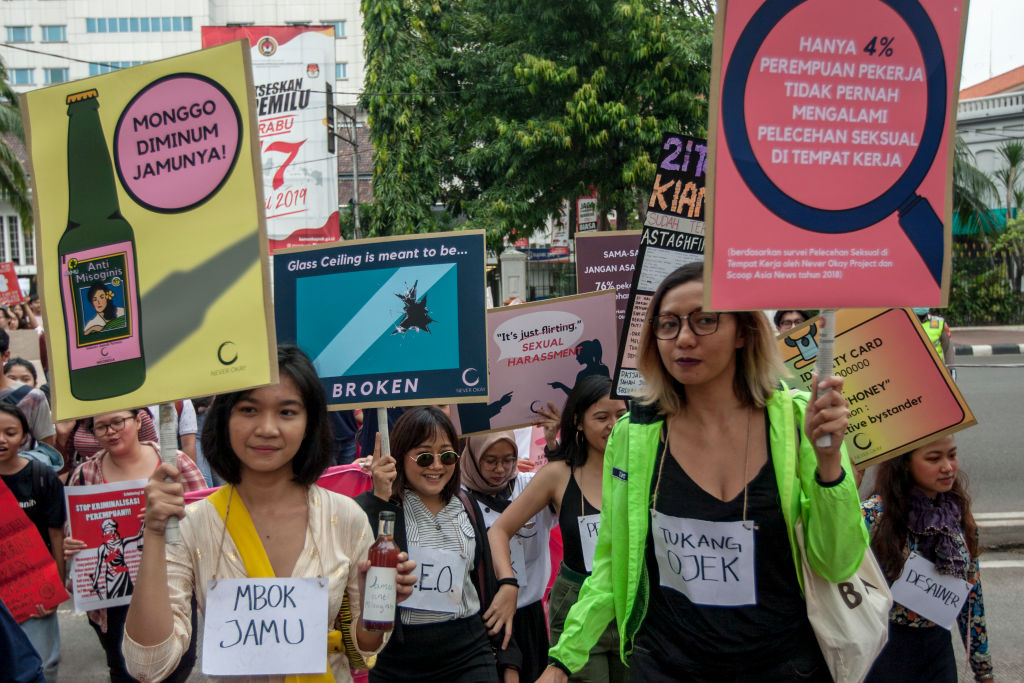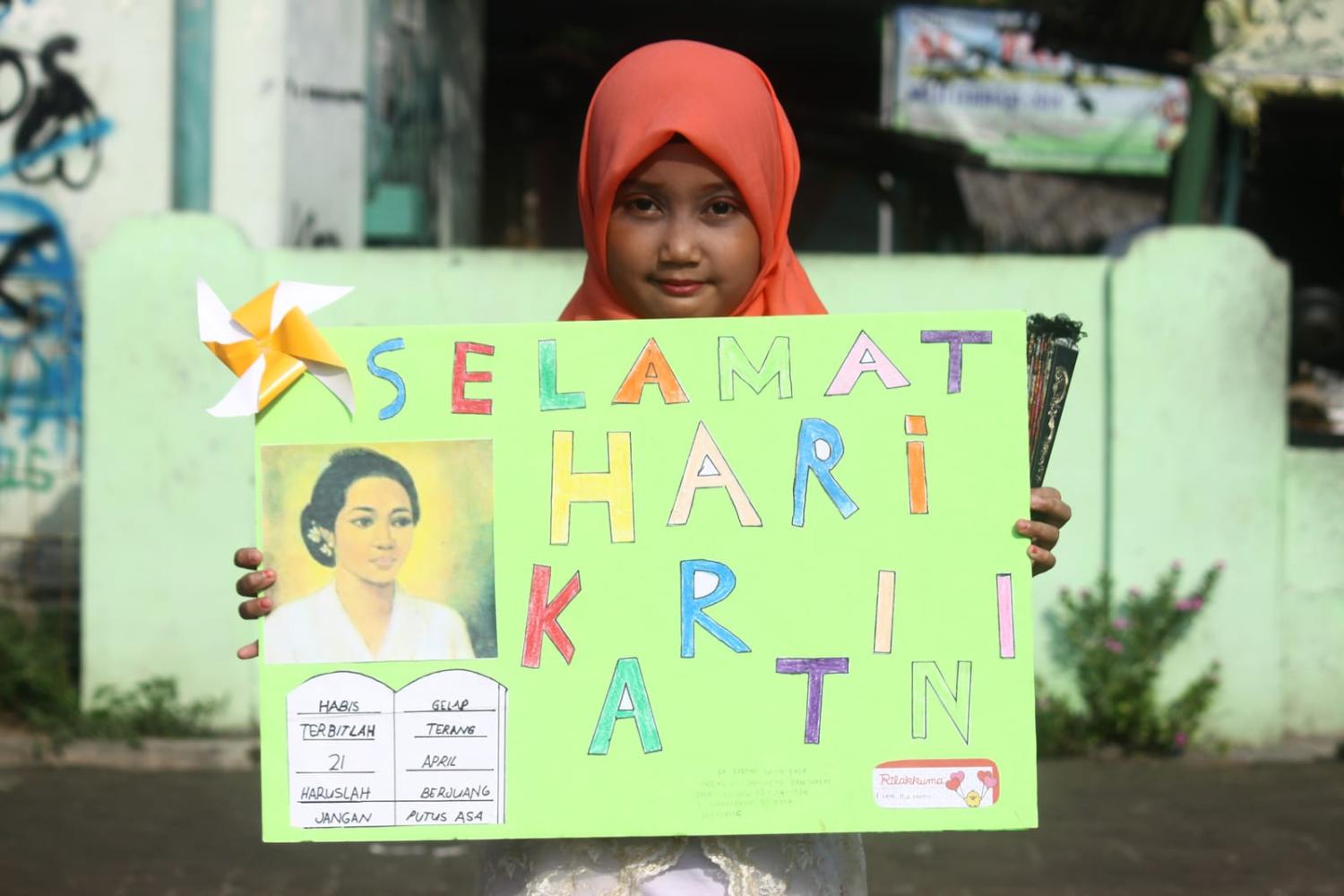On Sunday 21 April, millions of women and girls across Indonesia celebrated Hari Kartini (Kartini Day), the commemoration of the birth of 19th century Javanese noblewoman, Raden Adjeng Kartini. Named the first female hero in Indonesia by the country’s first president Sukarno in 1964, this year marks the 60th year of the national holiday.
For over a century, her legacy has been met with diverse interpretations and imagery. Indonesia’s long history of colonialism, independence movements, authoritarian regimes and globalisation has seen Kartini’s story tactically appropriated to suit the narratives of various groups and political leaders, including former president and military officer Suharto himself.
Some herald Kartini as Indonesia’s earliest feminist and an activist for the emancipation of women’s rights, while others have domesticated her image to represent traditional gender roles relating to motherhood and femininity.
In the 19th century and during Kartini’s life, notions of masculinity within traditional Javanese society, which had much influence across the Indonesian archipelago, did not subscribe to Western ideals of physical prowess. Rather, high spiritual potency was the mark of idealised masculinity and seen as an immaterial authority in which a person could hold power over others without the use of physical force or money. Anything relating to the non-spiritual realm was considered kasar (rough) and the responsibility of women. This meant women held “the purse string” or control of the household’s financial expenditure as money was considered a “rough”, worldly object.
Likened to Western ideas of women being “too emotional” or “too irrational”, Javanese women, unlike men, were not seen to have the akal (resolve) to overcome their nafsu (passion) and hence could not achieve spiritual potency. Taking on the “rough” responsibilities of the household meant Javanese markets were dominated by women traders. Matters relating to that of money and trade were seen to corrupt or distract a man from his spiritual prowess. Men were considered incompetent in terms of financial management and expected to turn over all their income to their wives. Receiving only small funds back, “pocket money”, to buy snacks and cigarettes.
Despite their control of matters relating to the family and home, dominant gender ideologies and customs were still restrictive for women. Oppressive traditions included pingitan (the seclusion of women after their first menstruation until marriage) and the custom of women being forced into polygamous marriages. Indonesian historical literature remembers Kartini as the earliest critical voice calling for the freedom of women. Second daughter to Javanese aristocrat and functionary of the Dutch colonial bureaucracy, Kartini protested the practice of pingitan, women’s lack of autonomy in the choosing of a marriage partner and the custom of polygamy. She also advocated for the importance of education for women and girls.
For years, Kartini corresponded with several contacts in Holland. Her letters detailed the constraints women of her class were subject to and her longing for greater liberty for women. The cruel irony of her story is her death. Just as she was offered the opportunity for further education in Holland, she was married off into a polygamous arrangement by her father. In the year after her marriage, she died during childbirth. The loss of her young life was not in vain, however. Before her death in 1903, she opened a school for girls in central Java. Her passing also triggered the publishing of her private letters in 1911, which went on to inspire women’s movements during the 20th century and still today.

Suharto’s New Order regime, which ruled from 1968 to 1998, orchestrated the radical transformation of Indonesia’s political landscape, strategically leveraging gender relations as a vehicle for control. Women were removed from both public and political spaces, and expected to obtain the biologically determinist role, kodrat (natural destiny), of being an Ibu (a term for a mother or wife). Based on the traditional notions of womanhood, these roles were officially defined by the Panca Darma Wanita (The Five Duties of Women). These duties were to be a wife first, then a mother, an educator and guider of her children, the guardian of the household’s morals and a citizen last.
Kodrat wanita (women’s destiny) emerged as an implied code of conduct by which women were measured during this period. Such duties were employed by the Indonesian state to reinforce the ideal image of women as apolitical, powerless and chaste. Kartini’s story and legacy was swiftly appropriated. Under Suharto’s direction, schools across Indonesia domesticated Kartini’s image, focusing celebrations not on the ideologies of the national hero but rather on women’s traditional activities such as cooking classes and fashion shows.

Through the selective editing of her image, Suharto was able to reconstruct notions of womanhood to suit the power interests of his state. The way in which Indonesia used ideologies of sex and gender as a form of state control was coined State Ibuism (state motherhood) by author and feminist activist Julia Suryakusuma. This strategy was a way for the government to depoliticise women and subjugate them to the domestic realm, simultaneously controlling them as a collective and restricting their personal freedoms.
Researchers, such as Monika Winarnita, have since explained how in 1998 political, feminist activists used the identity of Ibu (motherhood), initially used to relegate their role in society, to empower women through unification, giving them a political voice. This was particularly clever as their status as mothers gained public sympathy and camouflaged their political motivations. Pivotal in orchestrating this was Yayasan Jurnal Perempuan or YJP (the Women’s Journal Foundation), who after observing the increasingly authoritarian New Order regime, held meetings to discuss how civil society, particularly women’s movements, could legitimise the overthrow of Suharto’s government. YJP activists formed Suara Ibu Peduli or SIP (the Voice of Concerned Mothers) to “appeal to and mobilise women from many different ethnicities, religions and classes who could relate to the Ibu identity”. This strategy not only allowed SIP to overcome religious, ethnic and class differences, but also create a political identity which both empowered and unified women.
SIP’s first political action was a rally, in which members took to the street demanding the government to address the high inflation of baby formula milk and other domestic goods which was caused by the nepotism, corruption and collusion of Suharto’s authoritarian regime. As demonstrating on the streets was thought to be “beyond the sphere of respectable women”, SIP ensured their street rally emphasised the gentle qualities of motherhood to soften its radical nature. SIP blossomed into a grassroots movement that penetrated most of Indonesia. It took on the role of mother to the nation by providing food relief to poor mothers unable to feed their children. SIP proved that women’s empowerment was possible and could be achieved through working as a collective independent of state control.
In the 26 years since Suharto’s regime collapsed in 1998, gender rights groups and LGBTIQ+ activists have taken strides to unwind his inhumane legacy and improve the political, cultural and social lives of women in Indonesia. Their activism has been pivotal in attaining long sought after legislative reforms, especially in the areas of gender-based violence and marriage law.
The early 2000s saw the election of Indonesia’s first female president, Megawati Sukarnoputri, electoral gender quotas of 30% demanded for women, and the outlawing of domestic violence. In 2019, women rallied on Kartini Day, an attempt to reclaim her image as a feminist, to raise the minimum age of marriage for women. Organisers of the rally say they wanted to reclaim Kartini Day “as one of the most important days for women’s rights”. The Marriage Act of 2019 honoured this request, raising the age to 19 with parental consent and 21 without. Indonesia has also seen global feminist movements localised, including the MeToo movement which gained traction as MulaiBicara (start talking).

Unfortunately, despite increased conversation around women’s issues and major legislative overhauls in Indonesia, inequalities continue to prevail. Child marriage and polygamy continue to exist as families are still able to marry their young daughters off by obtaining approval from religious courts or local officials. Girls face larger school dropouts than boys due to domestic expectations and early marriages. Kartini’s very own school is seeing girls drop out before they turn 15. Women are still heavily excluded from political spheres and despite gender quotas have never made up more than 24% of seats in national parliament.
Kartini’s letters have inspired many academics, activists, journalists and students to fight for the rights of women throughout history. Legislative and socio-cultural evolutions in Indonesia have seen change, yet there remains an echoing chorus of voices demanding the very rights Kartini so passionately advocated for over a century ago.

